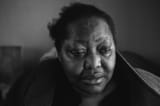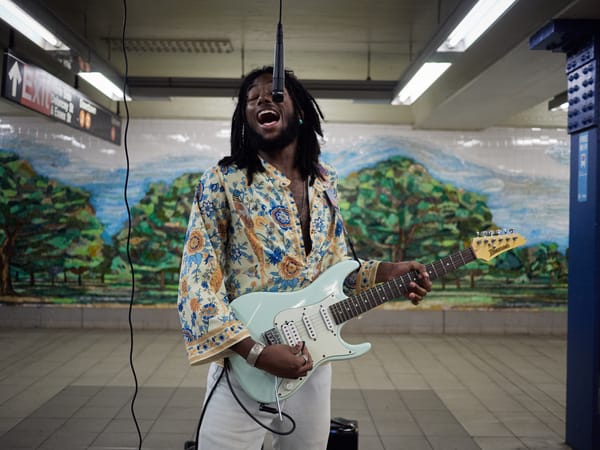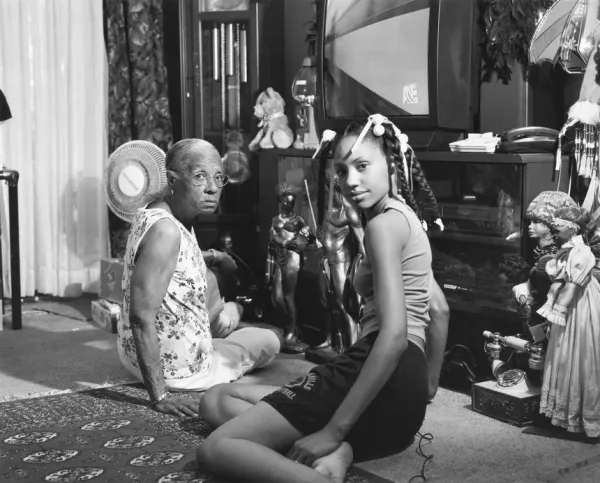Shifting the Gaze with Karis Beaumont

The Power of Photography to Reclaim Identity
Photography holds a unique ability to capture moments that reveal our deepest truths. It can document history, celebrate identity, and challenge assumptions about who we are and where we come from. In recent years, a new wave of Black British photographers has emerged. These artists offer fresh, honest perspectives that highlight underrepresented narratives and question dominant cultural norms.
One of the most compelling voices in this movement is Karis Beaumont.
This blog post explores Beaumont’s contribution to contemporary photography. It looks at how she challenges conventional ideas of cultural identity through her compelling portraits and documentary style. We’ll also explore how her work reflects the Black gaze, a perspective rooted in cultural self-awareness and lived experience. Along the way, we’ll introduce other Black photographers whose work shares similar themes.
Introducing Karis Beaumont
Karis Beaumont is a London-based photographer known for her vivid portrayals of Black British life, style, and identity. Her passion for visual storytelling began with community workshops and online tutorials. Over time, she developed a distinctive approach that blends creativity with social commentary.
Beaumont’s multicultural upbringing shapes the way she sees the world. She is drawn to the everyday realities of Black communities in Britain. Her portfolio includes everything from quiet family moments to lively street scenes. The result is a body of work that feels both deeply personal and widely relatable.
Her photographs show a dynamic relationship between identity, fashion, and setting. Whether capturing a young person in streetwear or an elder in traditional dress, her images always feel grounded and authentic. She balances bold colours with subtle lighting and thoughtful composition, drawing viewers into the world she creates.
Though still described as an emerging artist, Beaumont’s influence is growing quickly. Her work has been featured in exhibitions and major publications. She has collaborated with musicians, creatives, and community leaders. Her rise is part of a wider cultural shift. More Black British artists are claiming space, telling their own stories, and reshaping the creative landscape.
Challenging Traditional Notions of Identity
British identity is often portrayed in narrow ways. These portrayals don’t always reflect the rich and varied experiences of Black communities. Beaumont’s work challenges this by placing Black people at the centre of the story. Her images are affirming, layered, and expansive.
She resists the idea of identity as something fixed or singular. For example, she might photograph a young person wearing a hijab and Nike trainers. The image captures the layered nature of identity. It shows how individuals can move between cultural influences without contradiction.
Her work also explores what it means to belong. In one series, she photographs British-born children of African and Caribbean descent. They appear proud and confident in their heritage. At the same time, her images hint at the questions they face, curious stares or assumptions about where they are “really” from. These portraits reveal the resilience and complexity of Black British identity.
Importantly, Beaumont’s photography goes beyond the usual focus on struggle. While she acknowledges inequality, her work highlights joy, creativity, and pride. She creates a visual archive that celebrates everyday life and personal achievement. In doing so, she challenges old media tropes and reveals the diversity within Black communities.
Embodying the Black Gaze
The Black gaze refers to the way Black artists portray Black lives from the inside. Historically, Black people have often been photographed by outsiders. This has led to distorted portrayals, images shaped by stereotypes or voyeurism. The Black gaze offers an alternative. It centres the perspectives of Black people and affirms their agency in telling their own stories.
Beaumont’s work reflects this shift. Her portraits feel intimate and grounded. They show an understanding of culture, humour, and emotion that comes from shared experience. This cultural fluency builds trust. Her images feel respectful and familiar, not distant or detached.
She also demonstrates the Black gaze through her technical choices. Her lighting draws attention to the richness of Black skin tones. Her colour palettes add emotion and energy to each frame. These decisions challenge traditional techniques that have often excluded or misrepresented darker complexions.
In a wider context, Beaumont is part of a growing movement. More Black photographers are reclaiming the right to document their own communities. They are pushing for self-definition. They believe that representation should begin with those being represented.
Lessons from Karis Beaumont’s Practice
Beaumont’s work offers important lessons for artists, creatives, and anyone seeking a deeper understanding of identity and representation:
- Be authentic. Her strongest images come from genuine connection and trust.
- Stay rooted in your community. Her photography draws power from real relationships and lived experiences.
- Celebrate everyday moments. Ordinary scenes can be powerful when captured with care.
- Rethink representation. Move beyond stereotypes and allow your subjects to show their full selves.
- Be open to growth. Beaumont’s evolving style reminds us that experimentation is part of the creative process.
Expanding the Lens
Beaumont is part of a larger network of Black photographers who are reshaping British visual culture. Here are three other artists whose work complements hers:
- Ronan McKenzie. McKenzie’s portraits and fashion editorials feel personal and grounded. She often photographs her subjects in familiar environments that add meaning to each image.
- Adama Jalloh. Jalloh’s candid portraits capture the energy of South London. Her work highlights the beauty and diversity of everyday life in Black communities.
- Misan Harriman. While Harriman’s work spans international issues, he shares Beaumont’s focus on centring Black voices and empowering self-expression.
Together, these artists are broadening the visual language of Black British life. They are dismantling stereotypes and telling stories with depth, care, and integrity.
Conclusion
Karis Beaumont’s photography is a powerful reminder of what happens when art grows out of lived experience. Her images challenge old ideas about what it means to be both Black and British. They reflect identity in all its complexity, fluid, multifaceted, and deeply human.
Her work is more than a visual statement. It is part of a larger conversation about representation, creativity, and cultural ownership. The Black gaze is not just a concept. It is a practice, one that Beaumont embodies with clarity and purpose.
By exploring her work, and the work of others like her, we can help create a more inclusive cultural space. One where all people can see themselves reflected with honesty, dignity, and care.
Share on social
If this story sparked something in you, share it. Our voices are powerful, and when we lift each other up, we all see a little clearer.
Add your voice
Through The Black Gaze, we don’t just reflect the world, we reshape it. Your story matters. Share it. Honour it. Hold space for others. This is where truth lives and vision leads.
We invite Black photographers to contribute in two meaningful ways through story and image.






